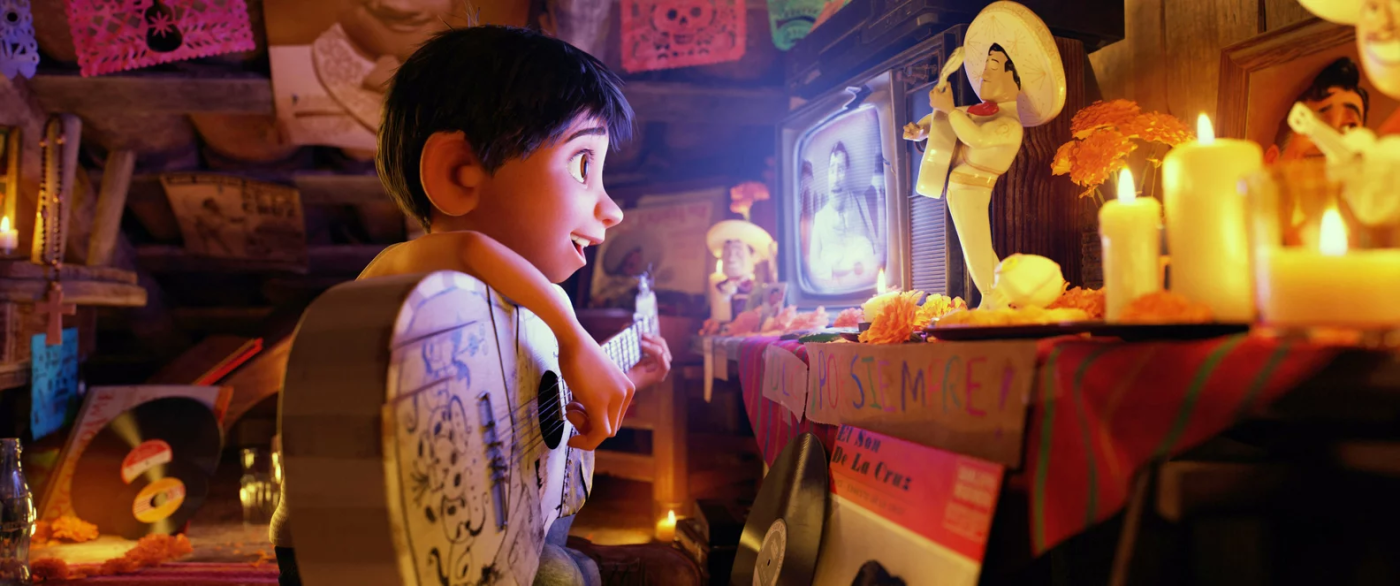Disney
How Disney’s “Coco” Reduced Stigma Around Día de los Muertos
Why We Still Cherish Disney/Pixar’s “Coco” Half a Decade Later: Even five years after its release, the enduring appeal of Disney/Pixar’s film “Coco” remains undeniable. The movie, which centers on the Mexican tradition of Día de los Muertos, holds a profound message about destigmatizing a holiday deeply rooted in celebrating death—a subject that often carries stigma within many Latine/x American households.
“Coco” emerged as an inspirational catalyst for Mexican Americans and Latine/x individuals navigating intergenerational healing. The animated masterpiece follows the journey of its protagonist, Miguel, as he embarks on a path of ancestral healing, challenging family traditions and uncovering the true essence of the Day of the Dead. By intertwining the importance of honoring ancestors with the reclamation of spiritual practices often considered taboo, “Coco” has resonated with Latine/x millennials and Gen Zers, fostering a renewed connection with the authentic significance of the holiday.
Miguel’s internal struggle in “Coco” to balance personal aspirations with family expectations mirrors the experiences of many Latine/x immigrants’ children. The complex interplay between assimilation and cultural pride, the desire to make parents proud while forging an independent path, resonates deeply with us. The significance of Día de los Muertos, unfortunately, has been diluted and appropriated in American culture, reduced to Halloween costume fodder. This misrepresentation erases the holiday’s true essence and cultural importance.

Symbolically depicted as skeletons in “Coco,” the characters Miguel encounters in the afterlife defuse the fear associated with connecting with the deceased. The film’s creators normalize the concept of communing with the dead, challenging the notion that such an act is irrational or malevolent. In reality, Día de los Muertos traces back to Indigenous Mesoamerican beliefs, serving as a potent reminder of the intricate connections between life and death.
“Coco” transcends cultural boundaries. Although not solely created by Latine/x individuals, the film delivers a vital lesson about the sacredness of Día de los Muertos, enlightening non-Latinx audiences about the holiday’s profound significance. It’s a departure from the superficial understanding of the holiday as an opportunity for revelry.
While rooted in Mexican culture, Día de los Muertos can inspire individuals to cultivate their ancestral practices, embarking on a journey that redefines societal perceptions of death and spirits. Much like Miguel’s quest in “Coco,” breaking generational patterns and honoring ancestral legacies are powerful steps in this decolonial healing process. The film echoes the sentiment that dialogue with our ancestors, seeking guidance, and preserving their memory is a year-round endeavor, far beyond the Day of the Dead festivities.
Through its evocative narrative, “Coco” has offered solace and motivation for those challenging entrenched norms and biases. It encourages engagement with ancestral practices, leading to transformation and empowerment. As we continue on this path of healing and reclamation, “Coco” stands as a testament to the profound power of storytelling and its capacity to reshape perspectives, heal wounds, and foster connection.
We bring out some of the most well-known Disney collection, all of which are available at reasonable costs. Visit our link now if you are interested in the Disney collection


Jiminy Cricket, Bambi, Thumper, Flower, Dumbo

